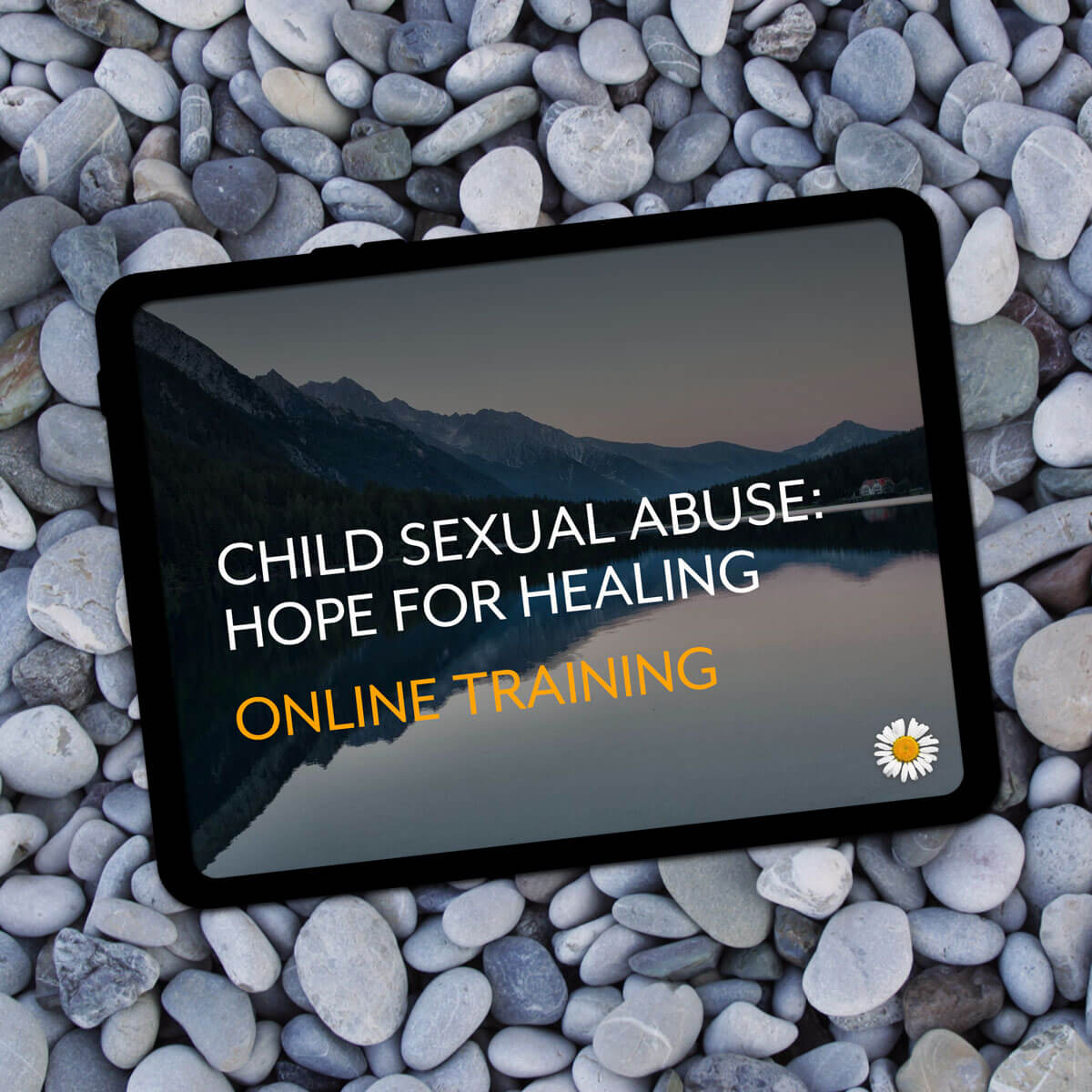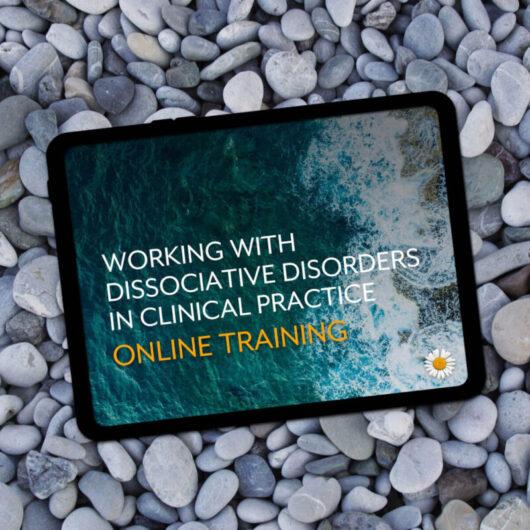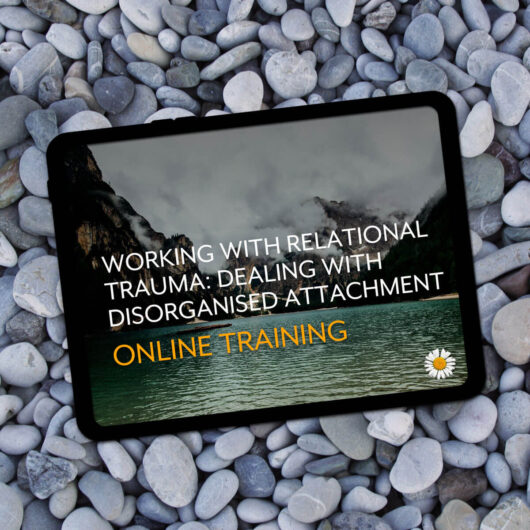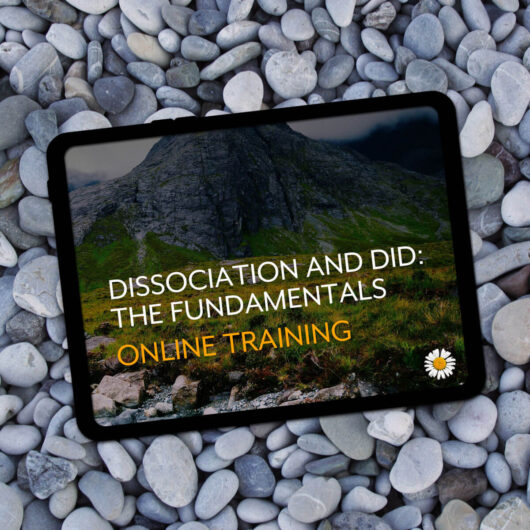Child sexual abuse represents the ultimate betrayal of trust. Working with survivors involves rebuilding that shattered trust and dismantling shame. One of the primary things that survivors need to know is that professionals ‘get it’ and that they can handle their trauma.
This course provides multiple ‘get it’ moments – profound insights into the experience and impacts of abuse which will help to build trust, rapport and empathy and will also equip you to hear with compassion the stories that survivors need to, but fear to, tell.
“This training is by far the best I have had on child sexual abuse. Carolyn’s approach is clear, and in-depth and I feel as though I have a much deeper understanding of all the different elements involved in the causes, effects and recovery from child sexual abuse. I needed breaks to get through it as it is as moving and emotional as it is practical and educational.
This is a training that I will go back to and I have already bought another of Carolyn’s courses. I really appreciate all that Carolyn does to share her experience of recovery and to support individuals and professionals in the journey of recovery. What an amazing inspiration and force for hope and healing.”
“This was very thought-provoking and honest. I found it helpful in understanding the point of view of an abused child and it made me question some of my practice as a counsellor. Thank you for an excellent course, Carolyn.”
“Hugely thought-provoking and deeply moving course. I feel it has given me more knowledge and understanding of the subject, deeper insight into the worlds of both survivor and perpetrator and more confidence in working in this area. Thank you so much. I look forward to learning more.”
“Thank you, Carolyn. Not only for sharing your experience but for the soul-searching, healing, reflection and knowledge that has gone into to creating this learning for us. Your experience and research very much give this training integrity, and I have learnt so much that I can keep in mind for my own practice. I also appreciate your understanding of course construction; the more bite-sized rather than lengthy sessions; interspersed with powerful videos. It makes an impact and helps one to take in, often very challenging material.”
“This training has been invaluable in transforming my thinking about childhood sexual abuse. Carolyn’s calm and methodical delivery carries you through the most disturbing and difficult of material in a way that feels both safe and contained. The message that recovery is possible is very clear and an enormous and profound relief.”
“The course has been incredibly well constructed. It addresses the issue with the necessary directness and clarity. The segments and ongoing accessibility meant I was able to take breaks to digest, process and ensure my own self-care throughout. Carolyn is a wonderful educator. I feel so much more informed about child sexual abuse which means I feel a greater confidence in how to best support my clients.”
“Working with adults I initially didn’t see this training as relevant. How wrong I was. We were all children once.”
“From the perspective of a survivor and trainee psychotherapist, this course was filled with so much valuable information and you covered so much. What drew me to this course was your message of hope for healing. I have encountered the odd professional who talk about it so clinically whilst you held the entire course consistently with knowledge, research, and facts, along with respect, tenderness and truth. Thank you so much for sharing your own experience and light. I look forward to taking your other courses.”
“I found this course powerful in understanding how sexual abuse takes place and every lesson gave me a deeper understanding of the impact it can have on clients.”
“Somehow you have managed to tell me about so much, things almost too awful to hear and yet in a way that allowed me to hear! Thank you, Carolyn.”
“I feel privileged and honoured to have experienced this training and to have heard of your journey to recovery. The course was informative, sensitive and hopeful. I feel more confident to work with survivors of sexual abuse and to offer my support for their journey to recovery.”
“I thought it was really informative, educational and insightful. It challenged some of my views and feelings which will help me grow as a practitioner.”
“I am completely inspired, hearing from someone who has been through sexual abuse but also been through many other aspects, child protection, therapy etc is so insightful. I am a therapist working with adults and children who have experienced sexual abuse, this training has really given me ideas on ways of working and reframing The abuse for the survivors, and knowing that recovery is possible and the survivor can lead a fulfilling life if the right support is given.”
- Available instantly upon purchase
- No set schedule – work at your own pace
- 6 hours of CPD with certificate upon completion
- Downloadable resources and additional reading for a comprehensive learning experience including:
- Course Notebook (with space for notes, reflection questions, session summaries, references and links)
- PowerPoint handouts (two versions, one with space for notes, one for easy printing)
- Psychoeducational poster (full-colour and low-ink versions)
- MP3 audio files
- Videos available to stream or also downloadable for offline viewing
- Lifetime access
- Start/stop and return as often as you like
- Easy to use: only needs a web browser and PDF reader
- Individual licence only: for multiple users and information about discounts for organisations, please click here.
Being sexually abused as a child is a traumatically lonely experience. During the abuse our attachment system cries out for support, but the only person present is our abuser. This has a profound impact on our ability to trust people, or to reach out for help – which can deeply affect the very therapeutic relationship we need in order to heal. The first step we need as adults in our recovery journey is to be believed – for our experiences to be profoundly understood. We need to be able to bring our experiences into a safe space with someone who treats us with unconditional positive regard, and who can work effectively with the dynamics of trust and betrayal implicit in sexual trauma. We need to know that they ‘get it’.
This course aims to provide that understanding. It provides an in-depth exploration of why abusers abuse, what the process of grooming and abuse involves and how the impacts of abuse are built largely on the transfer of responsibility from perpetrator to victim. In addition we explore often taboo subjects such as abuse by females and the process and impact of the production of images of abuse. This is a profoundly impacting training – hard-hitting but ultimately hopeful.
This vital course will benefit anyone who works therapeutically with either children or adults survivors of abuse, in particular counsellors and psychotherapists, but also people working in adoption and fostering, Rape Crisis, social work, occupational health, education, police, prisons, lawyers and healthcare. Survivors and supporters may also find it useful, although the nature of this topic means that some may find elements of the training triggering.
I speak on this course as someone with both personal and professional experience of the subject – both as a survivor of child sexual abuse within the family (incest), and as part of a network of abuse (a paedophile ring), and then with 15 years’ experience as a therapeutic foster carer looking after children who had also been abused. I combine my own experience with research, clinical theory and professional experience.
Session Summaries
Session 1
- Introducing the phenomenological experience of the adult mental health and behavourial impacts of child sexual abuse (CSA)
- Exploring our options as listeners when confronted with a narrative of CSA and how to manage those impacts on us
- Exploring societal responses to CSA and how these are manipulated by abusers in order to perpetuate abuse opportunities
- Exploring the lack of a single universe definition worldwide of a child
- Examining national and international discrepancies between the age of consent and the age of childhood
- Exploring definitions of CSA and CSE from both a technical and phenomenological perspective
- Exploring the phenomenological impact of CSA
- Exploring the difficulties in determining the prevalence of CSA
- Exploring the spectrum of offences contained within the concept of CSA
Session 2
- Exploring societal views of sex offenders, and the dangers posed when these are incorrect
- Exploring the reality of the ‘ordinariness’ of most offenders rather than the usual depiction as ‘monsters’, with reference to the Stop It Now! campaign
- Exploring the prevalence of abuse, including familial versus non-familial, gender of abusers, and the abuser’s relation to the victim
- Exploring the high numbers of victims per abuser
- Debunking the ‘victim cycle’ myth and exploring prior victimisation as a mediating factor but not a cause of future perpetration
Session 3
- Exploring the categorisation of child sex offenders as fixated v regressed paedophiles
- Exploring the role of long-term grooming of adult relationships in order to gain access to child victims
- Exploring the prevalence of incest versus extra-familial abuse, and prevalence of the gender of victims
- Exploring multi-factorial theories for offending behaviours
- Exploring the therapeutic usefulness of reframing abusers as weak and inadequate rather than strong and all-powerful
- Examining in detail key shared characteristics of offenders based on research, including deviant sexual interests, cognitive distortions, interpersonal deficits, empathy deficits and poor coping and self-management
- Exploring the therapeutic usefulness of understanding offender characteristics rather than victim characteristics
Session 4
- Exploring the deliberate nature of offending behaviour and the extent of long-term planning involved in it
- Exploring Finkelhor’s Precondition Theory
- Understanding the incidental role of the victim, as contrasted with the victim’s usual mistaken beliefs around causality, and the therapeutic usefulness of this information
- Examining the role of societal grooming in facilitating abuse
- Further exploring the lack of agency of the child’s (late) entry into the offending cycle
- Exploring grooming through the incitement to proscribed acts and secrets, reduction of wariness via boundary erosion, special treatment, overcoming resistance, and transfer of responsibility
- Exploring vulnerability factors to grooming
- Exploring grooming as the platform for continuing acts of abuse
Session 5
- Examining the belief that victims will be affected by life, or the extent to which we have some power and control over the outcome
- Exploring various first-hand case studies of children in care who had been sexually abused, with overt or covert presentations
Session 6
- Examining the long-term impacts of child sexual abuse with specific reference to the work and conceptualisations of David Finkelhor:
- Powerlessness
- Stigmatisation
- Traumatic sexualisation
- Betrayal
- Exploring the role of dissociation and the freeze response and their role in long-term powerlessness and shame
- Exploring the firsthand experience of overcoming traumatic powerlessness through compensatory strategies
- Exploring the role of the theapeutic relationship to overcome traumatic stigmatization
- Exploring the long-term impact on sex and sexuality from CSA
- Exploring the role of safe therapeutic relationships in redressing issues of trust and betrayal
Session 7
- Exploring the prevalence of abuse of males and the rise of initiatives and services for males
- Introducing the role of Oprah Winfrey’s show in highlighting the abuse of males
- Exploring the similarities and differences in impacts, challenges, and attitudes for male victims as contrasted with females
- Exploring societal attitudes towards females as perpetrators rather than as victims
- Exploring the research base for abuse by females, in particular how it is viewed versus how it is experienced, especially in terms of violence and even sadism
- Exploring the prevalence of abuse by females versus proportions of prosecutions, alongside the prevalence of physical violence by women
- Examining the relevance of females in a maternal or caring role as perpetrators
- Examining differences in age for children abused by females as opposed to by males
- Exploring the offending goals of female abusers
- Exploring the factors leading to females becoming perpetrators of child sexual abuse
- Examining further how society responds to abuse by females
- Exploring how disclosure by victims is limited by expectations of the ‘normality’ of what they have experienced, which leads to a vicious cycle of non-disclosure
- Exploring the experience of being abused by one’s own mother, including enmeshment, disidentification and gender identity
Session 8
- Exploring up-to-date alternative nomenclature for ‘child pornography’ and the reasons behind the shift towards other terms
- Exploring the phenomenological experience of being a victim used in the production of images of abuse
- Examining the history of the production of images of abuse, and in particular the role of technology advances in the proliferation of the production, distribution and use of images of abuse
- Exploring the multiple uses of images of abuse, including as currency for membership of networks of abuse
- Exploring the role of collecting, indexing and cataloguing in offending behaviour and how this drives further production
- Exploring insights from the COPINE project research
- Exploring the categorisation of images according to police investigation and sentencing guidelines, contrasted with research classifications
- Exploring the nature of collections of images of abuse
- Exploring the use of legal images of children in pre-offending settings
- Exploring the nature, production and use of pseudo-images
- Examining the use of images of abuse in the offending cycle (per Anna Salter)
- Exploring ways in which abusers reinforce their own cognitive distortions by the way images are produced
Session 9
- Exploring the impact of early CSA during a developmental period of ‘infantile self-preoccupation’ and how this impacts our framing and understanding of the abuse
- Exploring the Chowchilla bus kidnappings in 1976 as studied by Leonore Terr and its insights into the cause and effect thinking of the child victims
- Exploring the influence of the lingering effect of magical thinking in survivors of CSA on our later adult core beliefs
- Re-examining the offending cycle through the lens of the child’s non-causal involvement
- Re-examining the motivation of the perpetrator as it impacts the survivor’s guilt and self-blame
- Introducing the concept of the ‘Great Exchange’, i.e. the transfer of responsibility from perpetrator to victim, and the need to reverse this therapeutically
- Exploring key steps towards recovery: belief, reframing and social support.
- Examining the feasibility of recovery and its legal and medical implications
- Exploring Victor Frankl’s ideas of the need for meaning within suffering, and the importance of an internal locus of control
- Exploring the concept of powerlessness (including the belief of powerlessness to recover) as part of the syndrome rather than incidental to it
- Exploring the work of Mary Main (attachment theory) around the mediating factor of the ‘stance of the self towards experience’ in recovery
- The role of reframing in changing our view about ourselves after abuse, and the need to put an end to self-abuse
- A re-examination of Finkelhor’s impacts and the real-life experience of the positive and life-changing impacts of therapy in empowerment towards recovery



